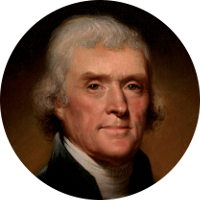
“The strongest reason for the people to retain the right to keep and bear arms is as a last resort to protect themselves against the tyranny of government”. ~Thomas Jefferson
Is there any doubt about the intentions of our Founding Fathers when they crafted the Second Amendment to the United States Constitution?
Let’s refresh our memory:
“A well-regulated militia being necessary to the security of a free state, the right of the people to keep and bear arms shall not be infringed.”
This clear and direct language underscores the fundamental right of individuals to possess firearms, a cornerstone of our liberties.
For those wondering about the Supreme Court’s stance on this issue, consider the landmark case District of Columbia v. Heller, decided on June 26, 2008:
“The Second Amendment guarantees an individual’s right to possess a firearm unconnected with service in a militia, and to use that arm for traditionally lawful purposes, such as self-defense within the home.”
This ruling solidifies that the right to own firearms is indeed an individual right protected under the Constitution.
However, this doesn’t mean the right is absolute. Many states have laws that regulate firearms while respecting this constitutional right. Occasionally, misguided efforts or ill-intentioned agendas seek to impose laws that infringe upon this fundamental right, contrary to the intent of the Constitution.
Some states have enacted what is known as “Constitutional Carry,” affirming that eligible individuals may openly carry firearms in public places where they have a lawful right to be, without the need for a permit. While there are restrictions, such as prohibitions on carrying firearms in specific locations like schools or courthouses, the core principle of individual firearm ownership remains protected.
In my home state of Pennsylvania, for example, there’s no such thing as a “Concealed Carry Permit,” despite common misconceptions. It’s important to accurately understand and articulate these terms to uphold our rights correctly.
Now, let’s reflect on Thomas Jefferson’s perspective. At the founding of our nation, after a hard-fought war for independence, Jefferson and his contemporaries drafted the Bill of Rights to secure the liberties they fought for against tyranny.
The Bill of Rights, comprising the first ten amendments, encapsulates these essential liberties—rights deemed inherent, inalienable, and endowed by our Creator. These rights cannot be taken away or surrendered; they exist as a birthright.
For those who may question the religious underpinning of these rights, let’s be clear: our nation’s founders believed in the inherent rights bestowed by God. The First Amendment ensures freedom of religion, not freedom from religion. Mutual respect for differing beliefs is fundamental to our unity as a nation.
It’s evident that our Founding Fathers were deliberate in establishing a constitutional republic, not a democracy ruled by the majority’s whims. They envisioned a government that protects the rights of individuals against encroachment, particularly from an overreaching federal authority.
Unfortunately, over time, legal complexities and interpretations have obscured the original intent of these foundational documents. Layers of legal jargon and interpretations have sometimes distorted rather than clarified their purpose—a form of modern tyranny in its own right.
Yet, the founders’ intent remains crystal clear: they intended for us to always have the means to resist governmental overreach and preserve our individual liberties. The Second Amendment stands as a safeguard against any form of oppression.
Jefferson’s words, “The Tree of Liberty must be refreshed from time to time with the blood of patriots and tyrants,” resonate profoundly. They underscore the vigilance necessary to uphold our freedoms and the principles enshrined in the Second Amendment.
In essence, the Second Amendment is not merely about the right to hunt or engage in recreational shooting. It’s about safeguarding our inherent rights against any threat, foreign or domestic. It’s about maintaining the balance of power between the government and its citizens, ensuring that our liberties remain intact and protected.
As we navigate the complexities of modern governance, let’s remember the clarity and purpose with which our Founding Fathers articulated these rights. Let’s uphold the Second Amendment as a sacred trust, essential to preserving our liberty and ensuring the vitality of our republic.